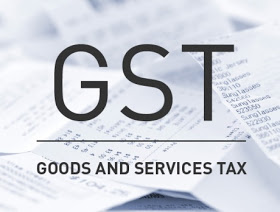The Lok Sabha has passed all four bills related to the Goods and Services Tax (GST) introduced by Finance Minister Arun Jaitley. The four bills are the Central GST Bill, the Integrated GST Bill, the GST Compensation Bill and the UT-GST Bill. The GST will aid free flow of goods and services across India and make goods cheaper, Jaitley said.
About These 4 Bills :
• Central GST Bill : This bill provides for the collection of tax on sale of goods and services by the Centre within a state.
• Integrated GST Bill : This bill pertains to the levy of taxes on sale between states.
• GST Compensation Bill : This bill provides for compensation to the states over any revenue loss.
• UT-GST Bill : This bill is about GST implementation in Union Territories.
Important Points to Note (GST Bill Highlights) :
• The Goods and Services (GST) is an indirect taxation wherein most of the existing taxes will be merged into a single taxation system.
Once the GST Bill is passed, it will allow the Centre and the states to levy indirect tax on manufacture, sale and consumption of goods and services across the country.
• In simple words, the Goods and Services Tax would put all taxes levied by state and Central government in one basket and merge them into a single-tax system, thus doing away with multiple taxation and promoting the concept of a common market for all.
• The Goods and Services Tax is governed by the GST Council which is headed by the Finance Minister. In Arun Jaitley's words, "once all other taxes are removed, the cascading effect is removed, goods will become slightly cheaper".
• The biggest challenge for a smooth GST rollout is coordination between states and the Centre to ensure uniform tax rates for good and services.
• To this effect, the GST Council has approved a four-tier uniform tax slab of 5, 12, 18 and 28 per cent on goods and services, plus an additional cess on demerit goods such as luxury cars, aerated drinks and tobacco products.
• Food items will not attract any tax and have been kept in the zero-per cent slab. Similarly, petroleum products, although included under the GST, will remain in zero tax slab as of now. However, the GST Council is yet to take a call on whether to keep alcohol under the Goods and Services Tax.
• With the Goods and Services Tax coming in, Centre-level taxes likes Sales Tax, Excise Duty, and state-level taxes like Value-added Tax (VAT), Entertainment Tax and Luxury Tax will be subsumed.
• On Wednesday, among the four supplemtary GST bills passed in Lok Sabha was the Central Goods and Services Tax (CGST) Bill. The CGST Bill will allow the Central government to levy and collect tax on intra-state supply of goods and services.
• The Integrated Goods and Services Tax Bill 2017 provides for levy and collection of tax on inter-state supply.
• The Compensation GST Bill will provide compensation to states for the loss of revenue they may incur owing to implementation of the Goods and Services Tax.
• Clarifying on the clause, Arun Jaitley told the House that no additional tax will be imposed to provide compensation to states, and states will be paid compensation within the existing mechanism.
• The other bill passed in Lok Sabha pertained to Union Territory Goods and Services Tax. The bill will enable levy and collection of tax on intra-state supply of goods and services or both by union territories.




No comments:
Post a Comment